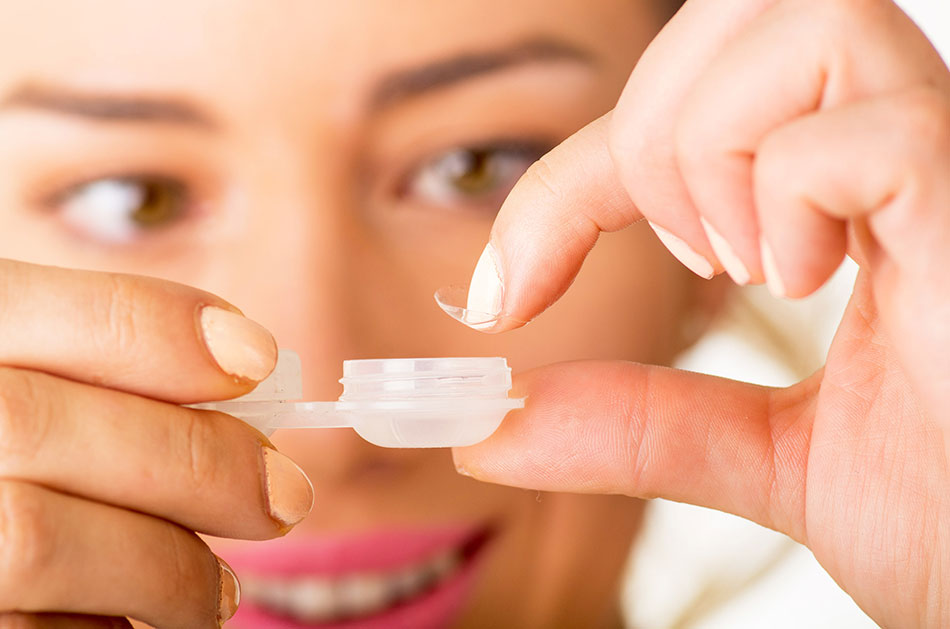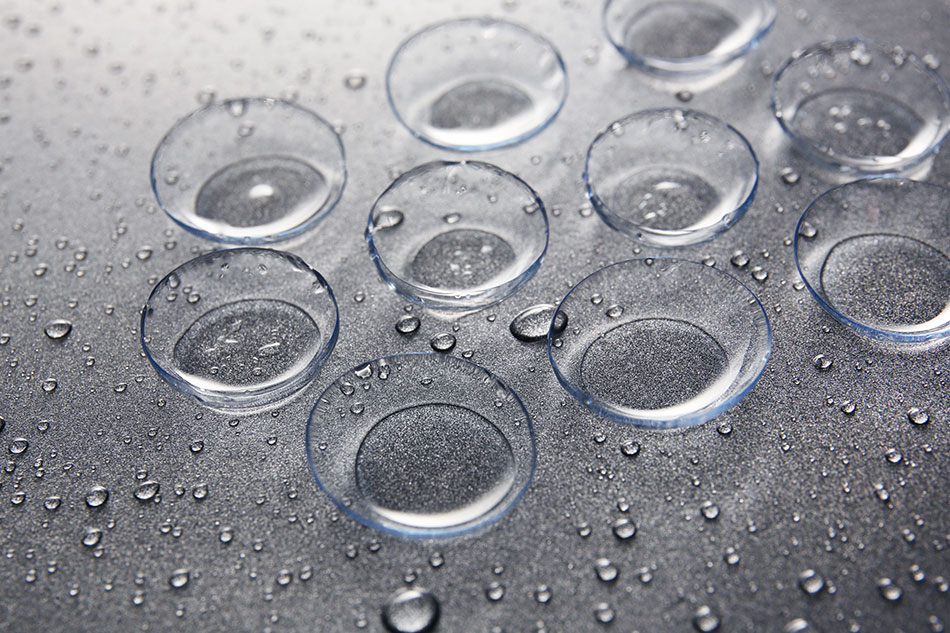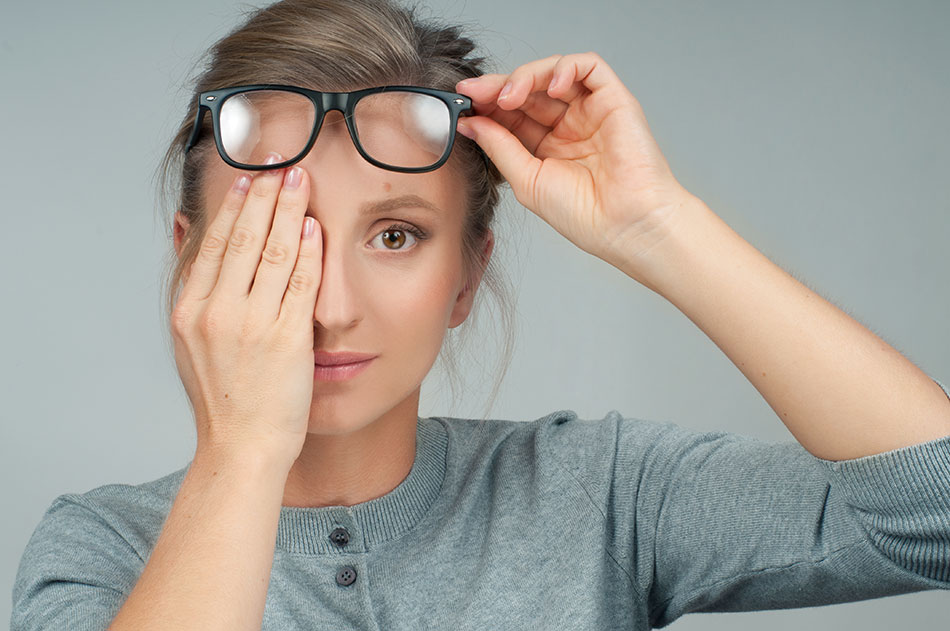A Quick Guide to Different Types of Contact Lenses

There is a wide range of people who wear contact lenses. From children and teens, adults to seniors, millions of people have enjoyed the benefits of contacts for a long time.
While it seems like contact lenses emerged in the 1960s, its history actually began in the early 1500s. Leonardo da Vinci created the first contact lens. However, since it involved a lens with a funnel that took on water, it wasn't very practical.
Fortunately, there’s been a lot of progress and now there are many brands and types of contact lenses available. The problem is finding the best ones for your needs.
To keep you from feeling overwhelmed as you peruse through the many contact lens options, we've developed this overview. Let’s take a look at some of the choices available as we do a contact lens comparison.
Various Types of Contact Lenses

While there are many brands on the market today, there are really only two types of lenses available: hard and soft. However, because hard lenses take longer to adjust to, many people choose soft lenses.
Here’s a comparison to help you decide which type is best for you.
Rigid Gas Permeable (Hard Lenses)
With gas permeable contacts, you can wear the lenses for up to one year. Some brands allow you to wear the lenses for even longer. Gas permeable contacts have a slightly flexible plastic that allows oxygen to pass through to the eyes.
These contacts help correct most vision problems, Including astigmatism and myopia. They’re also used for corneal refractive therapy. They provide the sharpest vision out of all available contacts.
However, they do require more visits to your eye doctor than most other lenses. They can also slip off-center more than other types of contacts and it's possible for debris to get trapped under the lens.
Disposable Lenses (Soft Lenses)
Disposable lenses are worn during the day and thrown out after a specific period of time. There are daily, weekly, and even monthly disposable lenses on the market. You can also purchase continuous wear lenses if you often sleep while wearing contacts.
However, disposable lenses can't correct all vision problems. And like with all types of contacts, you will need to visit your eye doctor more often than you would if you only wore glasses.
Daily Disposable Lenses
Daily disposable lenses let you put in a fresh pair each morning and simply toss them out at night. You should not sleep or nap while wearing daily lenses.
Extended Wear Disposable Lenses
You can wear these for a few days or up to a few weeks at a time. With overnight use, you don't even need to clean them, which is convenient for many people.However, there is a greater risk of infection with this type of lens.
Weekly and Monthly Disposable Lenses
Weekly and monthly lenses require you to clean them every night. You also shouldn't sleep in them, even if it’s just for a nap.
However, you can use them for a week or for up to a month and then dispose of them, giving you a fresh, new pair of lenses to enjoy.
Types of Contacts to Correct Vision Problems

One of the benefits of contacts is that technology has enabled them to correct a wide array of common eye problems. You can even get lenses that act as bifocals or change the color of your eyes.
Toric Lenses
Toric lenses help those with astigmatism correct their vision. These are cylindrical lenses that account for the irregularities in the cornea. Torics rely on gravity and eyelid interaction to maintain their orientation and work correctly.
Multifocal and Bifocal Lenses
Presbyopia is a condition that affects most people as they age. Symptoms are usually noticed after reaching the age of 40. Gradually or suddenly, someone with presbyopia realizes they can't read as clearly as they used to.
Bifocal and multifocal contact lenses are available to correct this condition. These are spherical lenses and also treat myopia and hyperopia.
Monovision Lenses
Just because you have two eyes doesn't mean they will behave in the same way. Sometimes, one eye is nearsighted while the other is farsighted.
Luckily, there are contact lenses available now that correct each eye. The lenses help them and the brain adjust together to create one clear field of vision.
Colored and Cat Eye Lenses
Colored lenses are available for those who always wished their eye color was different. You can experiment with new colors every day to keep people guessing.
You can even get cat eye contact lenses so you can spook your friends on Halloween!
Benefits of Contact Lenses

When taken care of properly, contact lenses have some definite perks. For one, contact wearers have great peripheral vision. Not so much with people who wear glasses, as they have to peek around frames.
Contacts move with your eye and you don't have to worry that frames will distort your line of vision. You also never have to worry that snow, mud or rain will dirty your lenses and make them blurry. Contact lenses never fog up either.
You also have more variety when it comes to sunglasses since you’re not restricted by your prescription. You won’t have to sacrifice the clear vision you need for the shades you want.
And one of the best benefits of contact lenses is that many people say they look and feel better when wearing them!
Shopping Around for Contact Lenses

While you can buy your contact lenses from your eye doctor, one of the main advantages of contacts is that you can shop around on the internet. You can save a lot of money by comparing before you make a purchase.
In fact, some brands will allow you to obtain a free sample so you can see if you like them without having to commit to an entire box. Your eye doctor may be able to get a free sample for you. Also, check with the contact lens manufacturer because many of them offer coupons to help you save even more money.
In the end, there are many types of contact lenses to choose from. Think about what works for you and speak to your eye care professional to get a recommendation you’d be happy with.
